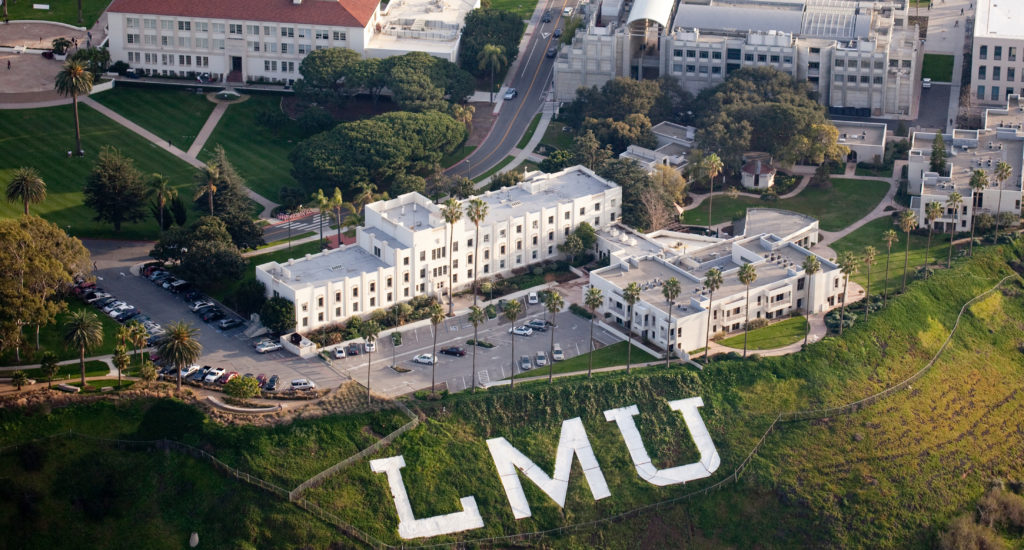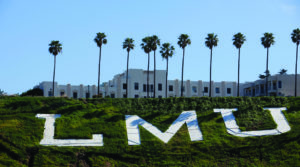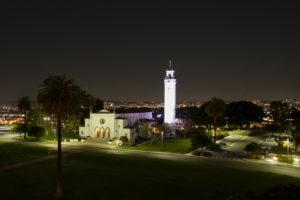LMU BELLARMINE COLLEGE OF LIBERAL ARTS | For the better part of a decade, Professor Robin Wang has taken LMU students to China to learn firsthand about the country’s philosophical and religious traditions. COVID-19 put such travel on hold, so this year instead of a worldly journey, she and students embarked on a course of inner explorations.
Wang and Thierry Meynard, S.J., professor of philosophy at Sun Yat-Sen University in Guangzhou, China, together have taught the cross-cultural and interfaith course “Philosophy and Religious Rituals.” An important component of the popular course has been the immersive experience that LMU students gain from being in the same classroom as, and conducting joint research projects with, Sun Yat-Sen students. A professor of philosophy, Wang said the pivot to remote instruction required her to change her theoretical and teaching approach to the course.
“I wouldn’t have thought about this virtual kind of class if there hadn’t been a pandemic,” Wang said. Applying remote learning technology to Ignatian, Hindu/Buddhist and Daoist spiritual exercises was, for her, a first. “Teaching different spiritual and meditation traditions in the moment actually became more effective because students are more connected to the reading materials through their own current situations…. It was a meaningful, productive and transformative experience for them.”
In the revamped course, Wang used the pandemic itself as a motivation, emphasizing mental, emotional, cognitive, practical and spiritual coping skills taught by the different faith traditions. Specifically, students focused on the Ignatian Spiritual Exercises, five elements in Hindu meditation, and the Daoist “fasting of mind” techniques. “There was even more reading than usual done by students,” Wang noted. “The China field trip is learning in action: city as a text to explore; social interactions as an inspiration to connect. This is learning in solitude that includes reading as a therapy; mediation as a self-reflection.”
“Then, most interesting for me, they each made a meditation plan of their own, based on ‘How do you spend your 20 minutes?’” Students used the knowledge they’d learned in class to create multimedia wellness plans – PowerPoint or videos with voiceover. These creative self-care projects were deeply expressive and individualized, Wang said, and can now be used by the students at any point in future when they may need them.
The summer course also includes an engaged learning aspect. Students were given three options: Engage with mother nature, by connecting with the landscape through the five senses; engage with society – for example, one student attended a protest, another went to a food bank; or engage with others, by sharing their meditation plans with siblings, parents and friends.
Thanks to technology, Wang was able to invite guest speakers, authors and practitioners to take part, widening the perspectives to which students were exposed. Notably, though students and speakers all sheltered at home, those homes spanned the globe, including Istanbul, Hong Kong, Jakarta, Naypyitaw, Shenzheng and Taiyuan.
While the class faced typical Zoom challenges, Wang said she sees distinct benefits. “Global complexity demands an ability to thrive in ambiguous uncertainty. How bad is the despair of lockdown? How sad is the absence of habituated joy and how hard is it to live through this mode of new normal? Young people really need this — something reflective, something transformative and something engaged.”
PHOTO ABOVE: Prof. Robin Wang and Father. Thierry Meynard, S.J. with LMU and Sun Yat-sen students at Luofusan Buddhist Temple, May 2019.




